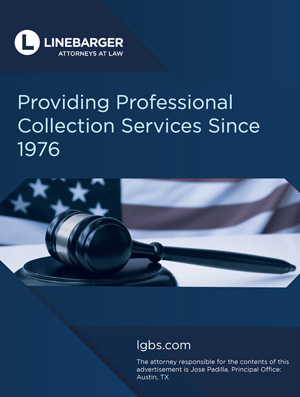Guardianship Guide Update

Paul DeLosh
Director of Judicial Services,
Supreme Court of Virginia
- Number of judges at court: N/A
- NACM member since 2004
- Past President of NACM
What is a NACM Guide?
Previously called mini guides, each year the NACM Board commits to the development of a resource on a topic of national importance to the court community. Guides are intended to highlight best practices and provide examples of successful court initiatives across the country. Recent topics include mental health, media relations, and guardianship and are aimed in the planning, development, and implementation of efforts to improve court performance and enhance the administration of justice.
The Adult Guardianship Guide was originally published in 2014. Why was there a need for a recent update?
The growth of an aging population, number of individuals with mental health challenges including individuals with Alzheimer’s disease and other dementias, along with the rising incidences of elder abuse placed focus on the need for courts to evaluate and make improvements in their guardianship system. State courts have long been urged and even expected to undertake a thorough evaluation of individuals requiring guardianships through thoughtful consideration of alternatives to guardianships, diligent monitoring of the guardianships, and promotion of training for both court personnel and those appointed as guardians. As a result, we have witnessed significant emphasis on the importance and need for court guardianship programs through self-assessment and the development of programs and services to improve the system. The update to the Adult Guardianship Guide highlights advancements in court programs and initiatives that enhance existing guardianship practices. The guide supports the recommendations of the 2021 Fourth National Guardianship Summit and promotes person-centered planning and the least restrictive options necessary for persons who are unable to fully care for themselves. It also identifies provisions within the Uniform Guardianship, Conservatorship, and Other Protective Arrangements Act (UGCOPAA) that is being considered for adoption in several of states.
How might the Guardianship Guide be helpful to me?
The guide is envisioned to be helpful to a broad audience that includes state and trial court administrators, judges and judicial officers, division managers, probate, specialty or family division staff, information technology staff, finance division staff, volunteers, justice agency partners, and members of the bar. Focus is placed on leadership in the planning, development, and sustainability of a comprehensive court guardianship and conservatorship program. It includes best practices in the establishment of a guardianship and management of the caseload; effective monitoring practices; implementation of a complaint process and developing response protocols; and development of a comprehensive training program. The guide also provides links to state court system websites and forms; identifies guardianship system technological innovations; offers tools, resources, and advocacy in support of excellence in adult guardianships; highlights successful audit and review functions; emphasizes courts initiatives in the development of specialized court staff for guardianship cases including volunteer monitor and visitor programs; and provides examples of court-specific training programs.
Who wrote the guide?
I was honored to be asked to chair a workgroup of talented and dedicated professionals who provided invaluable input to the creation of the 2022 guide. Workgroup members included experienced national guardianship improvement advocates, representatives from the National College of Probate Judges (NCPJ), trial court administrators, and representatives from the National Center for State Courts (NCSC). Contributors include:
Erica J. Boyce, Ph.D., National Center for State Courts
Tamara C. Curry, South Carolina, National College of Probate Judges
Rebecca Doolittle, Texas
Sally Hurme, Virginia
Jamie Majerus, Minnesota
Jodi Z. Mogan, New Jersey
Diane Robinson, Ph.D., National Center for State Courts
Kristi Jasberg Robinson, New Jersey
William J. Self, Georgia, National College of Probate Judges
Nisa C. Subasinghe, Maryland
Erica Wood, Virginia
Where can I find NACM’s Adult Guardianship Guide?
All NACM guides, webinars, and educational series can be found in the NACM Store. More specifically, the updated guide can be found in the NACM Store by accessing Guides, and then clicking on the 2022 Adult Guardianship Guide to add to your cart. While guides are free to NACM members and $10.00 for non-members, as creation of this guide was supported by the State Justice Institute (SJI), the guide is free to both members and non-members.
How can I get involved in assisting on future guide authoring?
NACM’s Communications Committee is responsible for promoting and maintaining effective communications with NACM members and partners through the development of resources such as guides. The best way to get involved is by attending a committee meeting. The committee meets the second Thursday of each month at 4:00 pm ET via Zoom.
ABOUT THE EDITOR
Carlene Redmond is court program administrator, Juvenile Court Unit, Restorative Programs Division, Cobb County, Georgia.


